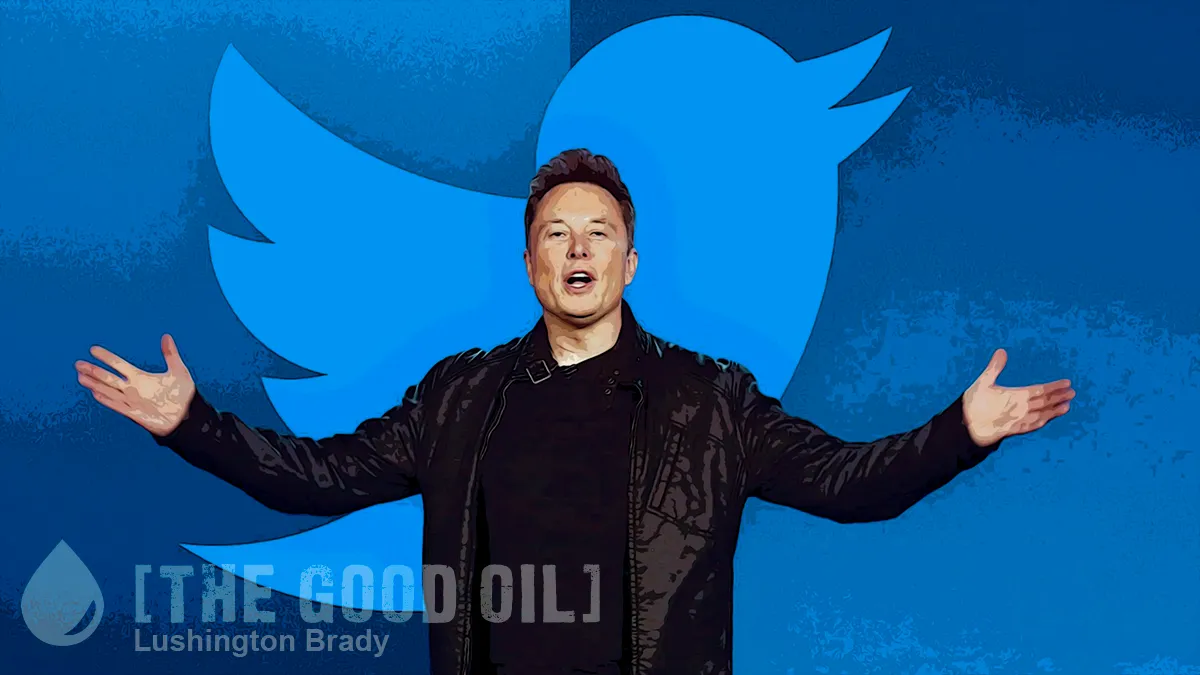Table of Contents
If you use X, you’ve probably noticed the phenomenon: leftist users screeching that it’s become a ‘hellsite’ and they’re leaving it for good. They’re moving to Bluesky or Mastodon, for sure. Any day now. Just you watch. They’re really gonna do it.
But they never do. They’ve been bellowing the same idiot chorus for over a year, and yet, there they still are.
Some of them, hilariously, like moronic actor Ron Perlman, actually make good on their threat, then come crawling back scarcely days later.
What set off their year-long temper tantrums? The world’s most successful African-American immigrant.
About three weeks after Elon Musk bought Twitter in October 2022, #RIPTwitter started trending. Musk had gutted the staff, and more workers quit when he gave them an ultimatum: Work “hardcore” hours or leave. With the platform on the brink, its users held a funeral. They spent the evening saying goodbye to their followers, shitposting on the #hellsite for the last time, and rounding up the best and worst tweets they had saved in the platform's 16-year history. They were somber, giddy, and anxious about the future of online dialogue. It seemed certain that a competitor would rise.
Well, they tried. But even the biggest bully boys on the block, Facebook, spectacularly failed to dent X’s dominance.
Right then, Gabor Cselle, a former director at Google and employee at Twitter, was working on a rival app. First called T2 and later Pebble, the goal was to make a trustworthy, safe site to fill the gap left by Twitter.
‘Trustworthy’ and ‘safe’: by which they mean, another reliably compliant left-wing narrative-enforcer.
Cselle was far from alone. As the bird app’s outlook grew more bleak, several alternative conversation platforms hatched: Narwhal, Spoutible, Spill, Post, and Cohost among them. In July 2023, Meta tried to seize the moment by launching Threads. Twitter cofounder Jack Dorsey tried to fix what he saw as Twitter's wrongs by launching Bluesky. (He quit in May 2024, saying the platform was “literally repeating all the mistakes” Twitter had made.)
Meanwhile, Twitter continued to teeter. Musk told advertisers “go fuck yourself,” abandoned most content moderation, and infamously changed the logo from a friendly blue bird to a cold X. At the end of last year, The Verge published a news package declaring that 2023 would go down as “The Year Twitter Died.”
It’s not like the mainstream media could be wrong, now could it?
But when big news hits, like a major sporting event or a sitting president’s decision to drop out of the race or the attempted assassination of a former president, X is where the conversation erupts.
Most of Twitters’ upstart challengers have folded. I talked to several founders about what they learned trying to compete with Musk, and the state of civil discussion online.
As if Twitter was ever ‘civil’ for anyone who didn’t toe the woke line.
The fatal mistake the challengers made was actually falling for the left’s own bullshit and thinking they were any more likely to desert X than they were to move to Canada in 2016.
“I sort of misread that moment,” Cselle says today. He thought all those mourners wanted something that was just like Twitter but that would reliably work – somewhere without excessive trolling and hate speech and deepfakes. “What #RIPTwitter was about, in retrospect,” he says, was a panicked “sense of ‘I might lose my status and my following and my handle and all of this network I’ve built up.’”
Pebble got about 20,000 registered users before stagnating and shutting down in November 2023. It lives on as a smaller server on Mastodon, which itself peaked at 2.5 million active users in December 2022 but is down to about 865,000.
And most of those, apparently, Japanese paedophiles.
Cohost, made by the Anti Software Software Club (which describes itself as “a not-for-profit software company that hates the software industry”), said last month that it was running out of money and would become read-only by the end of the year.
It gets funnier, believe me. Once again, the dinosaur media face-planted themselves deeper in the tar-pit of irrelevancy.
When Post, a platform “built for news,” launched in fall 2022, publishers like Politico, The Boston Globe, and Fortune signed up, and hundreds of thousands of people joined the waitlist. Founded by former Waze CEO Noam Bardin and funded in part by Andreessen Horowitz, the idea was that people could pay small amounts to read individual news articles rather than subscribing to many outlets. “I believe the future newspaper is the feed and want to make it more civil for users, profitable for publishers and better for society,” Bardin said in a tweet announcing Post. But it shut down in April 2024, citing slow growth that gave it no path toward becoming a “significant platform.”
Womp, womp, as they say.
Meanwhile, independent media are thriving. Who knew? Telling the truth is good business.









